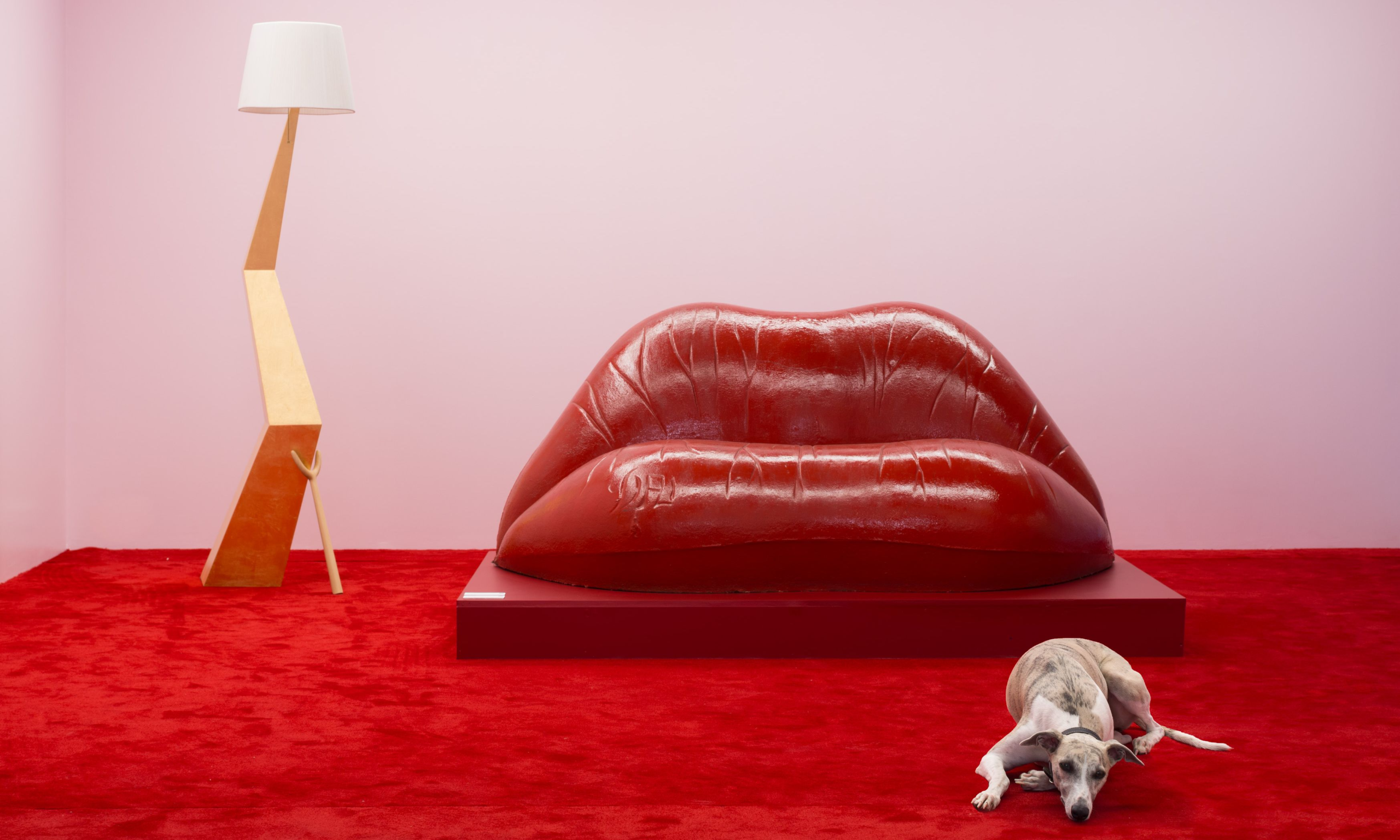The Dalilips sofa prototype in Galerie Poggi at Paris Design Week
Courtesy of BD Barcelona Design et Galerie Poggi © Léo Barranco
Galerie Poggi has taken Paris Design Week 2024, and the international celebrations of the Surrealist century, as a cue to expand its purview into design. The long-established Parisian gallery is showcasing a rare fleet of Surrealist furniture pieces in a show curated by the Spanish interior architect Joan Madera.
The exhibition centres around a protoype of Salvador Dalí's fabled Dalilips sofa from 1972, which was produced by the mid-century Spanish design company BD Barcelona Design and its founder, Òscar Tusquets. The firm’s rich history and achievements are made clear throughout the show.
The origins of the sofa date back to 1937 when Dalí, at the urging of his British patron, Edward James, created a most famously blushing pair of lips to sit on, the Mae West Lips sofa. James wanted the piece for Monkton House, his country pad in West Sussex, which he was reconfiguring as an entirely Surrealist space.
Decades later, Dalí reprised this idea when he was planning his Theatre Museum in Figueres. He worked with Tusquets to create the prototype now on view in Paris, renaming the piece Salivasofá.
“Dalí wanted this mouth to be very realistic,” says Madera. “He was experimenting with new materials.” Being able to see first-hand the results of this experimentation is special, because as productive as Dalí was, not that much of his design work remains.
Also included in the show are versions of Dalí's Leda armchair in bronze and in black as well as the Leda table. Both find their roots in Woman with Head of Roses, a painting from 1935, in what Madera describes as “Dalí's most Surrealist era”. The Xai table, meanwhile, a sort of taxidermied lamb with golden feet and a drawer in its belly, was inspired by the 1942 painting Interpretation Project for a Stable Library.
A version of Dalí's Leda armchair in bronze
Courtesy of BD Barcelona Design et Galerie Poggi © Léo Barranco
“With Dalí and Òscar Tusquets, we're midway between the functional or decorative object and sculpture,” says Madera. He describes BD, which ha rich history, as “the Vitra of Spain”. Like Dalí, Tusquet's collaborations were legendary—involving, among other artists, Ettore Sottsass, Antoni Gaudí, Charles Rennie Mackintosh and Álvaro Siza—and established him as an incontrovertible design reference.
Among the other highlights in the show are Antonió Gaudi's Gilding Calvet mirror and Ettore Sottsass's notorious Shiva vase, in blue and in pink. These are placed in conversation with Surrealist-adjacent works by gallery artists including George Tony Stoll and Sidival Fila.
Under the new collective ownership of Apartamento magazine and architecture firms Taller Bofill and Arquitectura-G, BD is now experiencing something of a renaissance. Chiming with the Centre Pompidou's current labyrinthine Surréalisme exhibition—on view across the square—the Poggi show demonstrates how enduringly alive the Surrealist movement still is. As Madera puts it, “Surrealism continues to permeate the world of decoration and the collective imagination at large.”

